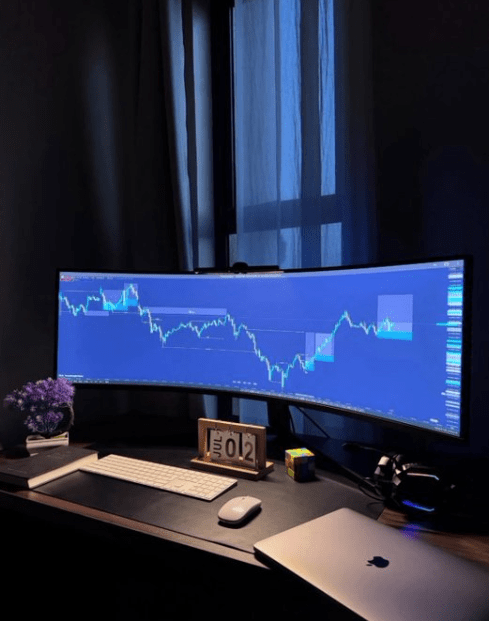Truly successful traders ultimately go through a transformation from 'excitement and impulse' to 'calmness and discipline.'
In the initial stages, we always think about 'understanding the market' and 'conquering the trends.' But the deeper we go, the more we realize - the market never needs you to conquer it; it only needs you to understand, or even accept it.
1. From technique to cognition: Trading is not about who understands the candlestick patterns better.
Most people are obsessed with indicators, patterns, and divergences when they enter the field, trying to find that 'foolproof system.'
But what the market truly tests is never 'which indicator you used,' but rather your understanding of risk, your insight into human fluctuations, and your ability to cope with uncertainty.
The core of stable profits is never 'smarter algorithms,' but rather 'more stable execution.'
2. Emotional management is the only system that cannot be outsourced.
After a long time, you will understand that in trading, what can ruin you is definitely yourself.
It’s not the market, not the projects, not the black swan, but rather:
• Greed, which makes you frequently go all in;
• Fear, which makes you miss key opportunities;
• Impatience, which leads you to chase highs and cut losses.
The market changes infinitely, but once your emotional patterns solidify, they can repeatedly harvest you.
3. The 'master zone' of trading is discipline + dull sensitivity.
Those who truly achieve stable profits are often not the ones who 'can catch the hot stocks every day,' but those who 'know what to do, what not to do, and can always restrain themselves.'
They do not get excited during surges, nor collapse during crashes.
What they possess is the ability of 'non-attachment to profits, and reverence for risks.'
This is not enlightenment; this is the accumulation of doing the right things day after day.
True masters do not rely on emotional drives but on process-driven approaches.
4. Loneliness is the norm, but loneliness is an advantage.
Mature traders rarely speak out, nor do they participate in the 'hustle.'
Because they understand: Most of the voices in the market are noise.
They will not change direction because of a trending tweet, nor will they panic and follow the crowd just because 'everyone in the group is shorting.'
This is not 'arrogance,' but the confidence cultivated over the long term - the basis of judgment comes from data, systems, and experience, not from emotional voting.
5. The end of trading: it is a part of life, not everything.
Those who have truly gone through a complete cycle will ultimately understand one thing:
Trading cannot define who you are, nor should it determine how you live.
It is merely a way for you to participate in the world, understand yourself, and enhance your cognition.
You will experience explosive profits, catastrophic losses, emotional ups and downs, and also experience burnout, doubt, and a fresh start.
But the reason you can stay is not that 'trading can make you rich,' but rather that you 'can turn it into something worth long-term investment.'
Conclusion:
To excel in trading is not to conquer the market, but to understand it;
It is not about defeating others, but about mastering yourself.
It is not about becoming famous through a single windfall, but about surviving correctly over the long term.
This is not a myth, nor is it metaphysics. It is simply the ability of an ordinary person to make certain choices in an uncertain market.
#以太坊十周年 #美联储利率决议 #币安HODLer空投TREE #稳定币热潮 #上市公司加密储备战略

